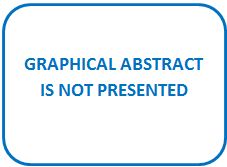Analysis of transformations of the modern economy
DOI:
https://doi.org/10.15587/2706-5448.2023.279945Keywords:
type of economy, economy of sustainable development, circular economy, digital economy, migration economyAbstract
The object of research is the economy, its types and directions of modern transformation in the conditions of global instability of world development in the 21st century. Since the economy is a reflection of the trends of social development, the understanding of the definition of «modern economy» changes and needs clarification and improvement. The active movement of resources and capacities as a result of global social upheavals of the 21st century has created a need to understand aspects of the migration economy.
The research is analytical. During the research, special methods of information processing and analysis were used: elimination, intuitive method. The work is aimed at the systematization and generalization of the terminology used to characterize modern social production processes, determining the expediency of introducing the definition «migration economy». This will make it possible to formalize the process of making management decisions in the conditions of the trend of total migrations.
The paper analyzes the terms that describe the economy at the current stage of development. It is shown that several terms are used simultaneously: «movement», «migration», «relocation». And only the term «migration» has an essential interpretation as emergency and unplanned actions. An attempt was made to formulate the definition of «migration economy» as a specific economic activity of society, caused by both voluntary and forced (including emergency) migration of subjects of economic relations across national or regional borders, which changes the spectrum of economic, social interactions and the economic landscape both in the territories of departure and in the territories of destination.
The work shows that the real processes of the world economy require a modern terminological definition. This will form the basis for its forecasting and development.
The interpretation of the modern economy as a migration economy allows for the formulation of new principles of the organization of production processes: autonomy, adaptability, allocation of business blocks according to the principle of optimal added value. The practical value of the work lies in the effort to form a definition of the modern economy, which makes it possible to specify management decisions on the organization of production and to understand the directions of changes.
References
- Fedulova, L. I. (2012). Somyi tekhnolohichnyi uklad: mify, realnist ta perspektyvy. Visnyk Natsionalnoho universytetu «Iurydychna akademiia Ukrainy imeni Yaroslava Mudroho», 1 (8), 7–18. Available at: http://econtlaw.nlu.edu.ua/wp-content/uploads/2016/02/1-7-18.pdf
- Enright, M. J.; Dunning, J. H. (Ed.) (2002). Globalization, Regionalization, and the Knowledge‐Based Economy in Hong Kong. Regions, Globalization, and the Knowledge-Based Economy. Oxford: Oxford Academic, 381–406. doi: https://doi.org/10.1093/0199250014.003.0016
- Buckley, P. J., Clegg, J., Forsans, N., Reilly, K. T. (2003). Increasing the size of the ‘country’: regional economic integration and foreign direct investment in a globalized world economy. The Changing Global Context of International Business. London: Palgrave Macmillan UK, 191–217. doi: https://doi.org/10.1057/9780230501553_10
- Fujita, M., Thisse, J.-F. (2006). Globalization and the evolution of the supply chain: who gains and who loses? International Economic Review, 47 (3), 811–836. doi: https://doi.org/10.1111/j.1468-2354.2006.00397.x
- Scott, A. J. (1999). Regions and the World Economy: The Coming Shape of Global Production, Competition, and Political Order. Oxford University Press.
- Christopherson, S., Dreier, P., Mollenkopf, J., Swanstrom, T. (2002). Place Matters: Metropolitics for the Twenty-First Century. Economic Geography, 78 (4), 515. doi: https://doi.org/10.2307/4140801
- Factor mobility in the global economy: policies for growth in an interconnected world. Economic Policy Committee (2006). ECFIN/EPC(2006)REP/56235 final. Brussels. Available at: https://economic-policy-committee.europa.eu/sites/default/files/docs/pages/factor_mobility_en.pdf
- Piore, M. J., Schrank, A. (2018). Protecting Work and Workers in the Twenty-First Century. Harvard University Press, 224. doi: https://doi.org/10.4159/9780674986244
- Dunning, J. (2002). Multinational Firms: Global-Local Dilemma. Routledge, 220.
- Henderson, J., Dicken, P., Hess, M., Coe, N., Yeung, H. W.-C. (2002). Global production networks and the analysis of economic development. Review of International Political Economy, 9 (3), 436–464. doi: https://doi.org/10.1080/09692290210150842
- Hotra, V. V. V. (2018). Sutnist ta osoblyvosti intehratsiinykh protsesiv yak chynnyka rozvytku natsionalnoi ekonomiky. Naukovyi Visnyk Uzhhorodskoho Universytetu. Seriia «Ekonomika», 2 (52), 42–48. doi: https://doi.org/10.24144/2409-6857.2018.2(52).42-48
- Mizhnarodne bezpekove seredovyshche: vyklyky i zahrozy natsionalnii bezpetsi Ukrainy. Kyiv: NISD, 60–64. Available at: https://www.nas.gov.ua/siaz/Ways_of_development_of_Ukrainian_science/article/13084.032.pdf Last accessed: 25.04.2023
- Dashevska, O. V. (2011). Hlobalizatsiinyi vplyv na rozvytok ekonomichnoi systemy krainy. Naukovyi visnyk Uzhhorodskoho universytetu. Seriia Ekonomika, spetsvyp, 33 (1), 90–96.
- Prykhodko, I. V. (2015). Teoretychni kontseptsii mizhnarodnoi ekonomichnoi intehratsii. Ekonomichnyi analiz, 18 (1), 91–100. Available at: https://intrel.lnu.edu.ua/wp-content/uploads/2015/10/ecan_2015_191__14-1.pdf
- Tsili staloho rozvytku. Orhanizatsiia Ob’iednanykh natsii Ukraina. Available at: https://ukraine.un.org/uk/sdgs Last accessed: 25.04.2023
- Mashuskii, V. (2019). Tsyrkuliarna ekonomika. Orhanizatsiino-pravovi aspekty. Business Law Electronic Resource – ongoing integrating resource. Available at: https://www.businesslaw.org.ua/circle-economic-t/ Last accessed: 20.04.2023
- Koronovirus v tsyfrakh: yak zminylasia svitova ekonomika (2020). ВВС News Ukraina. Available at: https://www.bbc.com/ukrainian/features-51994936 Last accessed: 25.04.2023
- Pidlisna, О. (2019). Modern migration of industrial enterprises: systematization of the factors. Scientific Notes of the University «KROK», 4 (56), 48–54. doi: https://doi.org/10.31732/2663-2209-2019-56-48-54
- Prohrama relokatsii pidpryiemstv. Ministerstvo ekonomiky Ukrainy. Available at: https://www.me.gov.ua/Documents/Detail?lang=uk-UA&id=3e766cf9-f3ca-4121-8679-e4853640a99a&title=ProgramaRelokatsiiPidprimstv Last accessed: 25.04.2023
- Pidlisna, О. А., Kozhemiachenko, О. О. (2023). Analysis of feasibility of introducing principle of autonomy to the list of production processes organizing principles. Economic Synergy, 1, 163–185. doi: https://doi.org/10.53920/ES-2023-1-13

Downloads
Published
How to Cite
Issue
Section
License
Copyright (c) 2023 Olena Pidlisna, Maryna Duchenko

This work is licensed under a Creative Commons Attribution 4.0 International License.
The consolidation and conditions for the transfer of copyright (identification of authorship) is carried out in the License Agreement. In particular, the authors reserve the right to the authorship of their manuscript and transfer the first publication of this work to the journal under the terms of the Creative Commons CC BY license. At the same time, they have the right to conclude on their own additional agreements concerning the non-exclusive distribution of the work in the form in which it was published by this journal, but provided that the link to the first publication of the article in this journal is preserved.








